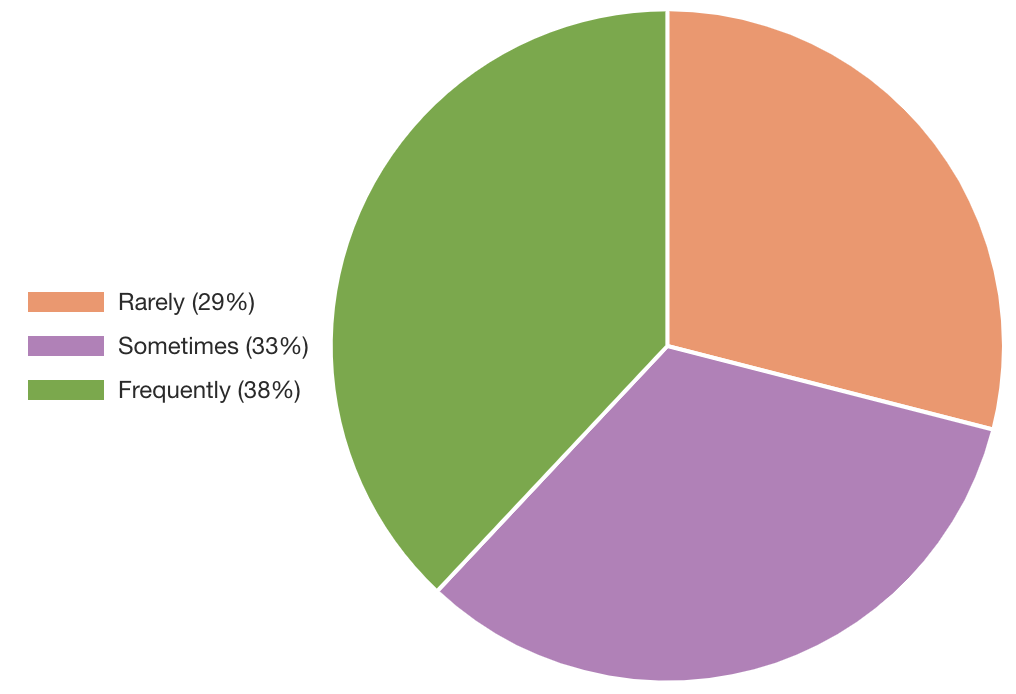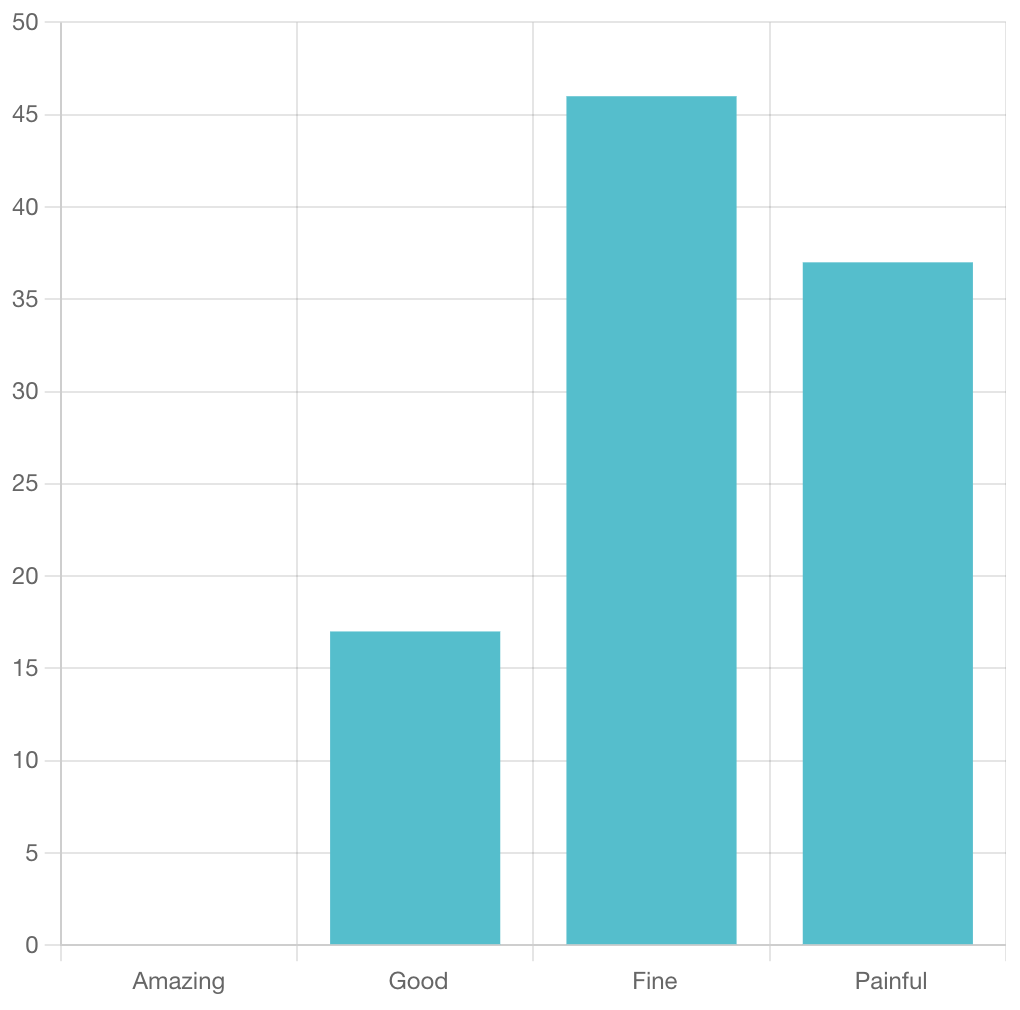1. Do you know what your candidates think about your interview process?
80% of live poll respondents claimed to have either no idea or a vague idea of how candidates perceive their company’s interview process. But they should find out. Not only will candidates refuse a job offer, but they will also alter their purchasing behavior with because of it.

46% of candidates who believe they had a negative job seeker experience with a company say they will no longer make purchases from that brand.
The takeaway:
- Let candidates know they are important and theair time is valued. Make candidates feel comfortable by over communicating, speaking through preferred methods like text messaging, and respecting their time by allowing candidates to self-schedule their own interviews.
- Infuse your employer brand into the interview process to build excitement about working at your organization and to make the interview process indicative of your work culture.
- Capture candidate feedback with surveys after phone screens and interviews to gather insights into the interview process.
2. How many requisitions are you responsible for at any given time?
56% of talent acquisition leaders expect hiring will continue to increase across today’s strong economy. However, only 32% of these leaders expect recruiting teams to grow, asking existing recruiters to do more with the same amount of resources. Live poll respondents concur: well over half report to being responsible for upwards of 15 requisitions at any given time, with nearly 15% juggling over 45.

The takeaway: Reduce scheduling time from 1 week to 2 days
- Utilize automation to add efficiencies into the recruiting process. Interview self-scheduling software reduces scheduling time from one week to two days. Reduce interview changes with a staff availability calendar that syncs with Gmail and Outlook.
- Decrease interview costs by consolidating interview scheduling into a single platform. To streamline the process, take advantage of video interview software.
3. How frequently do you have to chase down interview team members for interview feedback?
Hiring the right candidate is crucial for employee retention: 46% of new hires fail within the first 18 months. But when it comes to getting candidate feedback after interviews, more than 2/3 of live poll respondents admitted team members often have to be chased down in order to provide input when making important hiring decisions.

The takeaway:
- Streamline the interview process to keep interview teams prepared and from becoming frustrated or fatigued. Automate interview preparation through consolidated communications and digital prep packets to make interviews more efficient and organized.
- Maximize the interview itself by coordinating interview questions through digital feedback forms. Making it easy for interviewers to provide feedback and get consensus throughout the interview can cut down on unnecessary follow-up communication.
- Send surveys to interviewers after interviews are completed to track candidate quality, and use survey feedback to adjust the interview and evaluation process.
What’s the best way to get interviewer feedback?
Check out interview tools and strategies in Your Interview Process: A 360° Transformation!
4. How would you rate your interview scheduling process today?
Considering all the possible pain points throughout the recruitment process, it’s no surprise that only 45% of live poll respondents consider their interview scheduling solution just “fine.” But the most striking responses are 37.5% of respondents finding their process “painful” — and not a single person considering theirs “amazing.”

The takeaway: 37.5% of respondents finding their process “painful” — and not a single person considering theirs “amazing.”
- Take steps to make the interview process painless for both recruiters and candidates. Recruiters need to stay in contact with candidates and schedule interviews, phone calls and meetings; candidates appreciate communication and respect for their time.
- Automate whenever possible. Recruitment operations software can coordinate scheduling, communication and feedback in a single, easy-to-use platform.
- Gather feedback from both recruiters and candidates at every step of the interview process. More information about your interview process can help improve your overall interview experience.


